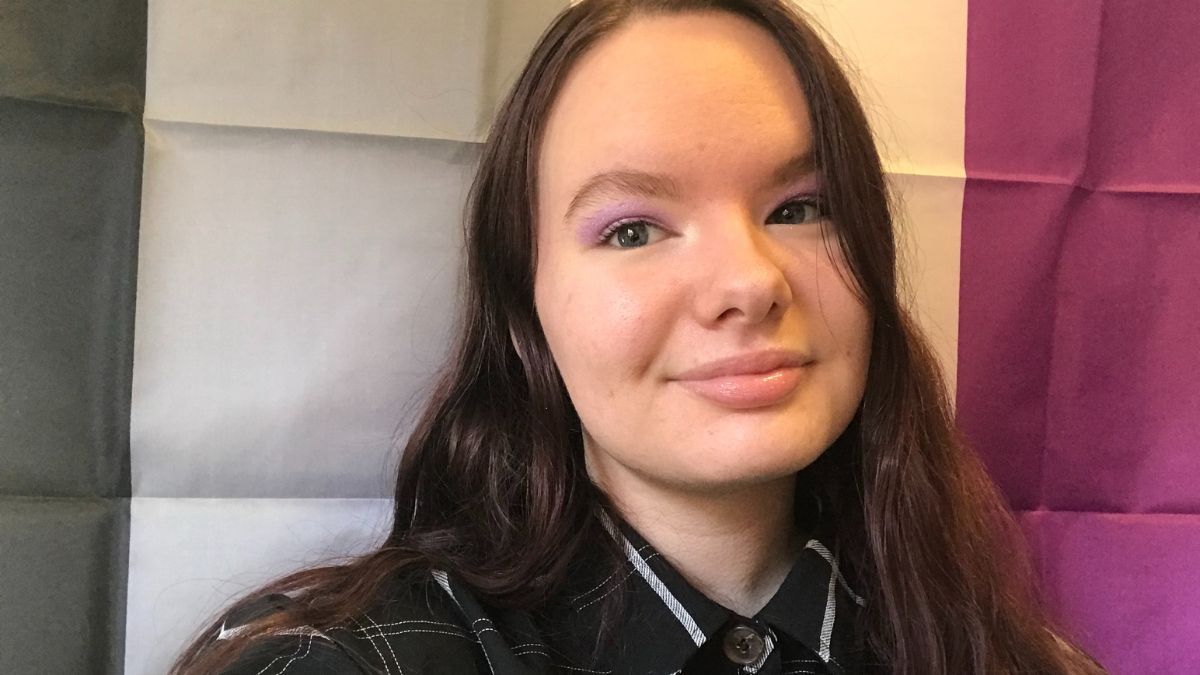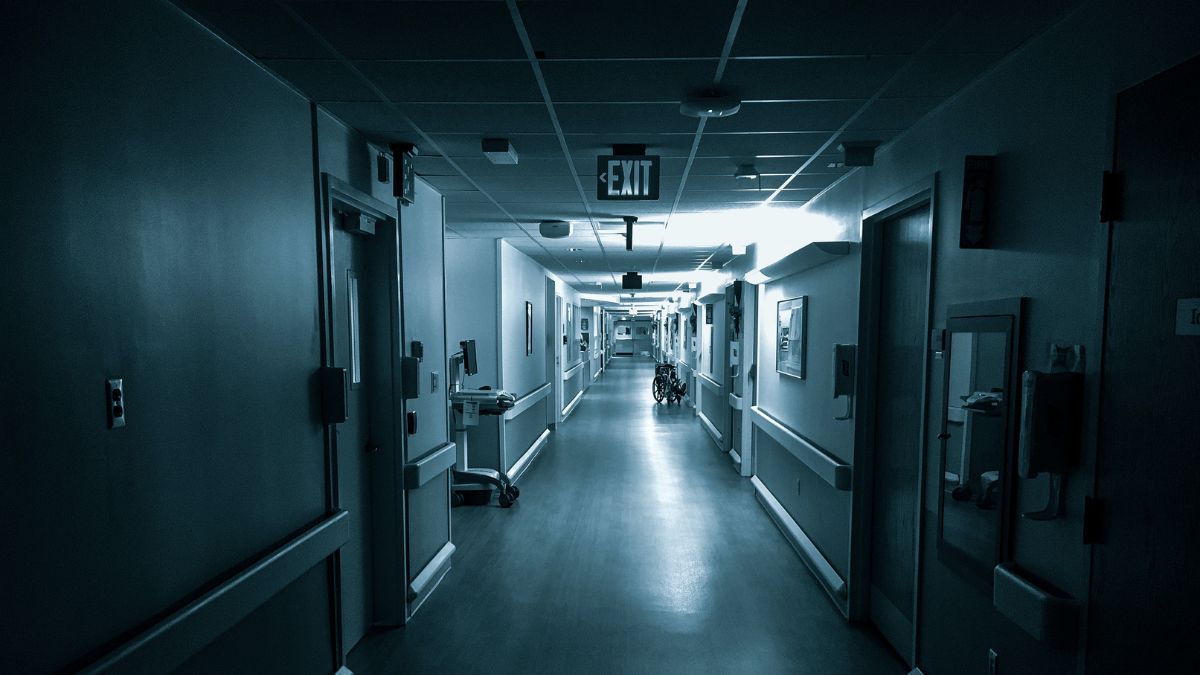Being hospitalised hindered my recovery: my thoughts on how the mental health system should change


I was fifteen years of age when I was hospitalised for my mental health.
Although I wasn’t admitted under Section 2 or 3 of the Mental Health Act in the United Kingdom, which allows coercive and forced admission, I was told this was the only option available to me and my family at that moment in order to keep me safe and not risk the mental health of those close to me. I didn’t know any better.
Now, six years later, I am still carrying so much of the trauma that occurred to me during my hospitalisation as I work with the systems that hurt me and try and improve care services for others.
Whilst I can’t say there were no benefits to being hospitalised, the positive outcome came at a high cost and so much more. The positives were mainly experiencing a range of psychological therapies from Dialectal Behavioural Therapy, to art and drama therapies, and the support of staff whom I could talk to. If therapy was not underfunded and was made accessible, person-centred and financially viable, I would have preferred to have that support out in the community and not through the hospitalisation.
Unfortunately, hospitalisation was presented as the only option at the time.
Psychiatric units as oppressive environments
In the United Kingdom, anecdotally around 60% of inpatients in psychiatric units for children and adolescents under 18 are autistic (National Development Team for Inclusion, 2021). Looking back, I can see some of the reasons why living in a psychiatric unit was so hard for me, which were mainly due to some of my autistic traits.
A huge part of the issues I experienced was related to the sensory environment with the constant alarms triggering me into panic attacks and sensory-based meltdowns. I also struggled significantly with eating since I have difficulty with some textures and tastes, which resulted in fewer options of things that I could eat. Because of that, I would often be left eating only jacket potatoes and bread that were meant to go with soup.
I also grappled with communicating to staff. Many of the staff expected that all patients should communicate in the same way and any divergence was seen as wrong, difficult or rude. I didn’t feel comfortable telling them when I was struggling until it became considerably detrimental to me and my recovery because I was criticised for the way I spoke or understood responses. My ward threatened discharge if I was seen to be “copying” the behaviour of others but as an autistic person, mimicking is a part of how I cope socially.
The structural issues of psychiatric units
Since the hospital was understaffed, the additional 24/7 support that was promised in the ward didn’t exist. Having multiple people in crisis at the same time caused distress, with patients being ricocheted around the unit rapidly and with no one available to help.
Many psychiatric units are not human rights compliant. Restrictive practices and seclusion often violate the right to be free of inhumane and degrading treatment, whilst blanket restrictions on items allowed are normally against the right to peaceful enjoyment of possessions.
Coercive and restrictive practices, , are causing trauma to young people daily. We need solutions, those which are based truly on the needs of the person. There are two parts to this: the first being better and more timely community care because so many people would not reach crisis points if early intervention was funded and easily accessible. The second is care for those who do reach a crisis point, which could include respite care with non-medical professionals, small groups and in an environment that isn’t pathologised.
Living for several months in the unnatural environment of the psychiatric unit, where one only has little freedom or physical space, meant that I became increasingly stressed on the lead up to my discharge. I had been in such an intense structure and got used to the staff being around that I couldn’t imagine my life outside of this space and structure anymore. In that moment, I knew I needed to leave. I felt that I was somehow in a better place in comparison to when I was admitted, and although I was being increasingly traumatised, it felt untenable to be anywhere else. Young people using mental health care services need more support in transitioning into and out of institutional settings.
For me, being in a psychiatric unit caused much more trauma from the oppression I endured as a marginalised individual, in addition to constantly seeing other’s critical incidents normalised by the institution.
Young people need personal agency and support to direct their own life
Young people should be able to identify for themselves what they want their life to look like, and not have goals forced upon them and to conform to societal norms and standards. Personal agency – advocating for one’s goals and being able to put oneself on a powerful path in recovery – is important. Being admitted into an institution because medical professionals feel they are stuck with a patient should never be an option.
Therapies need to be person-centred and truly about the hopes, dreams and needs of the individual. For me, being back out in the community meant I had more freedom to learn and understand what I wanted my life to look like.
The impact of my psychiatric admission on my personal and professional life
I now work as a lived experience expert and consultant for our health services and third sector organisations. Work entails reducing admissions and improving the environments of units through human rights training and changing sensory environments.
I talk about how staff should become more conscious of person-centred and trauma-informed practices even whilst they work in a system that is built on archaic power structures and harshness. I raise awareness regarding the Human Rights Act in the UK as a foundation law, since the Mental Health Act alone does not justify these actions. Most importantly, I advocate for more young people to be given alternative, community-based support, so they are not forced to go through what I had to.
Changing coercive hospitalisation practices is not a simple equation. These practices are baked into our mental health care services and the history of institutionalisation is lengthy and normalised. The changes I want – a brand new system completely different from the current system – are far away but that doesn’t mean we shouldn’t be discussing them or chipping away at the system.
Even though my hospitalisation was a long time ago, there are still many months or years remaining to process my experiences, both in the therapeutic contexts and on my own. My admission to the hospital, which was pushed as a place that would make me better, will always be the thing that did the most damage.
The Author
Charli Clement (she/they) is an activist and writer who talks about disability, mental health and asexuality. She works with the NHS and other organisations around psychiatric inpatient care, human rights and autism, and is currently writing her first non-fiction book around autism and chronic illness. You can find her on Twitter and Instagram: @charliclement_
Stay connected
Get our latest news, personal stories, research articles, and job opportunities.
